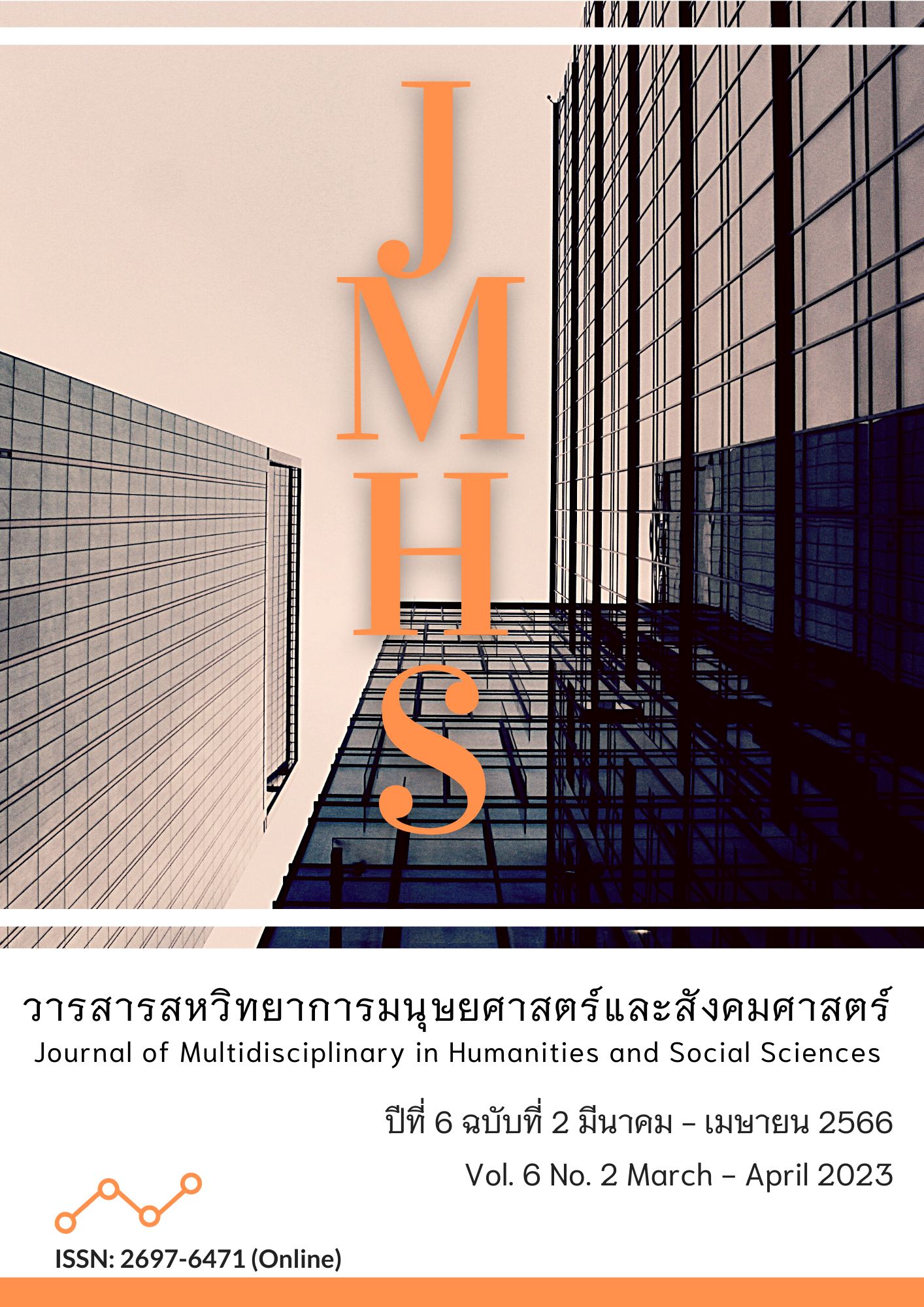A Using the sovereignty in Cyberspace
Main Article Content
Abstract
This article aimed to analyze the cyber sovereignty by explaining the basics of understanding sovereignty and its application in a borderless world. In addition, in the article, lessons learned from the cyber threat response policies of the countries are listed for problems to eliminate, such as poaching the cyber sovereignty that will happen in Thailand. The conclusion will be proposed with policy recommendations for the benefit of the government sector. This article came from a study of theoretical concepts, a literature review, and interviews with relevant stakeholders. These issues may not be new, but they are becoming more serious troubles in cyberspace. When state power and technology are combined, a new dimension of the battlefield emerges that cannot be anticipated. The parallel between the cyber world and the real world has made governments unable to respond to threats effectively. Using domestic laws to arrest cyber criminals, demanding fairness from the United Nations, or applying international law may not be the best answer for dealing with cyber threats. In order to prevent the interference of state power in the cyber world, this article provides answers for further study and research.
Article Details

This work is licensed under a Creative Commons Attribution-NonCommercial-NoDerivatives 4.0 International License.
Views and opinions appearing in the Journal it is the responsibility of the author of the article, and does not constitute the view and responsibility of the editorial team.
References
เดชชาติ วงศ์โกมลเชษฐ์. (2515). หลักรัฐศาสตร์. (พิมพ์ครั้งที่ 8). กรุงเทพฯ: โรงพิมพ์สมาคมสังคหศาสตร์แห่งประเทศไทย.
Betts, A. (2009). Sovereignty and the State System. Forced Migration and Global Politics, 2(3), 43-45.
Brown, G.D. (2013). The Wrong Questions About Cyberspace. The Newly Formed United States Cyber Command, 1(217), 214-233.
Chachavalpongpun, P. (2022). Nationhood in the Cloud: Cyber Sovereignty in Thailand, Retrieved October 31, 2022, from https://doi.org/10.1080/10357823.2022.2109591
Corn, G., & Taylor, R. (2017). Sovereignty in the Age of Cyber. AJIL Unbound, 1(111), 207-212.
Egan, B. (2016). Legal Adviser, U.S. Dep’t of State. International Law and Stability in Cyberspace, 1(35), 169-180.
Encyclopedia Britannica. (2019). Britannica. Retrieved September 24, 2022, from https://web.archive.org/web/20061020084752//corporate.britannica.com/company_info.html
Electronic Transactions Development Agency [ETDA]. (2018). การรักษาความมั่นคงปลอดภัยของโครงสร้างพื้นฐานสำคัญ. Retrieved December 24, 2022, from https://www.etda.or.th/th/Useful-Resource/documents-for-download/ETDA-Annual-Report-2018.aspx
Hare, F. (2009). Borders in Cyberspace: Can Sovereignty Adapt to the Challenges of Cyber Security?. Retrieved October 22, 2022, from https://ccdcoe.org/uploads/2018/10/06_HARE_Borders-in-Cyberspace.pdf
Humber, K. (2019). Crimean Tatars and the Politics of Sovereignty: Small State Instrumentalization of Ethnic Minority Sovereignty Claims in Geopolitically Disputed Territory(Doctoral dissertation). University of British Columbia.
Irshaid, F. (2016). How ISIS Is Spreading Its Message Online. Retrieved September 15, 2022, from https://www.bbc.com/news/world-middle-east-27912569
ITU. (2020). Organizations and Institutions that Address International Cybersecurity. Retrieved October 22, 2022, from https://www.itic.org/dotAsset/c/c/cc91d83a-e8a9-40ac-8d75-0f544ba41a71.pdf
Jamnejad, M., & Wood, M. (2009). The Principle of Non-intervention. Leiden Journal of International Law, 22(2), 345-381.
Joel, R. (1996). “Governing Networks and Rule-Making in Cyberspace”. Emory Law Journal, 45(2), 928-950.
Johnson, D.R., & Post, D. (1996). Law and Borders: The Rise of Law in Cyberspace. Stanford Law Review, 48(5), 1367–1402.
Liaropoulos, A. (2013). Exercising State Sovereignty in Cyberspace: An International Cyber-Order under Construction?. Retrieved September 20, 2022, from https://www.researchgate.net/publication/287453182_Exercising_state_sovereignty_in_cyberspace_An_international_cyber-order_under_construction
Lindsay, J. (2015). Engagement Without Recognition: The Limits of Diplomatic Interaction with Contested States. International Affairs, 91(2), 267-285.
Petchkla, N. (2022). Government Sector’s Response in Counter-Cyberterrorism in Thailand. International Journal of Crime, Law and Social Issues, 9(2), 1-14.
Roscini, M. (2015). Evidentiary Issues in International Disputes Related to State Responsibility for Cyber Operations. Texas International Law Journal, 50(2-3), 233-274.
Schmitt, M. (2016). US Transparency Regarding International Law in Cyberspace, JUST SECURITY. Retrieved November 25, 2022, from https://www.justsecurity.org/34465/transparency-international-law-cyberspace/
Segal, A. (2020). China’s Vision for Cyber Sovereignty and the Global Governance of Cyberspace. Retrieved September 14, 2022, from https://www.nbr.org/publication/chinasvision-for-cyber-sovereignty-and-the-global-governance-of-cyberspace/
Sherman, J. (2019). How Much Cyber Sovereignty is Too Much Cyber Sovereignty?. Retrieved November 5, 2022, from https://www.cfr.org/blog/how-much-cyber-sovereignty-too-much-cyber-sovereignty
Tavenner, E. (2022). Russian Cyber Sovereignty: Global Implications of an Authoritarian RuNet. Retrieved November 25, 2022, from https://www.american.edu/sis/centers/security-technology/russian-cyber-sovereignty.cfm
The Cabinet Office. (2020). The UK Cyber Security Strategy Protecting and Promoting the UK in a Digital World. Retrieved October 16, 2022, from https://assets.publishing.service.gov.uk/government/uploads/system/uploads/attachment_data/file/60961/uk-cyber-
security-strategy-final.pdf
Weber, V. (2020). The Sinicization of Russia’s Cyber Sovereignty Model. Retrieved May 31, 2022, from https://www.cfr.org/blog/sinicization-russias-cyber-sovereignty-model


